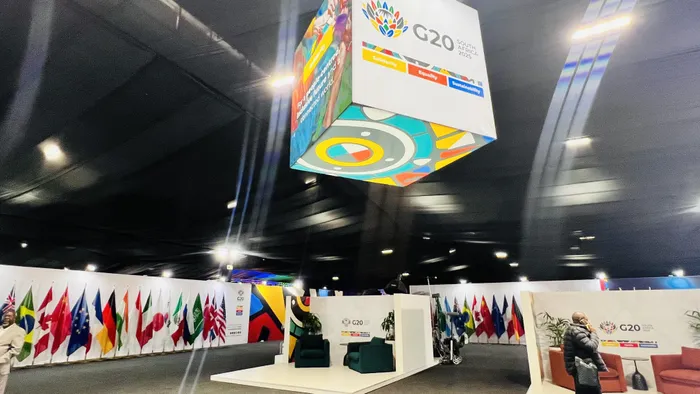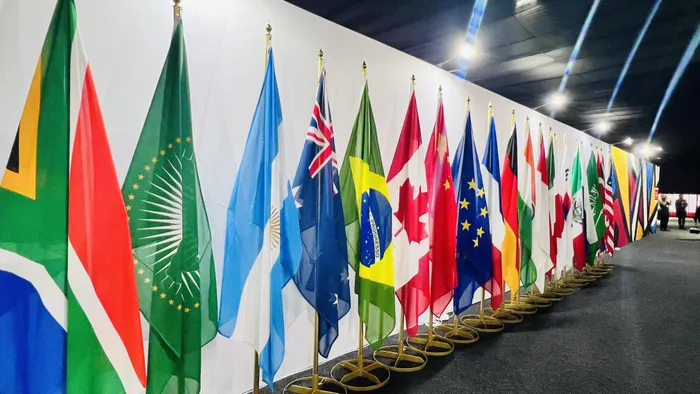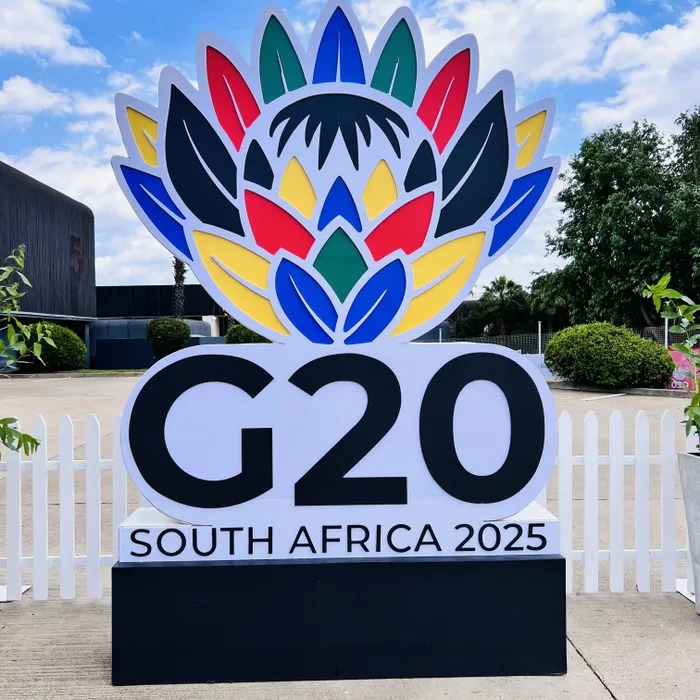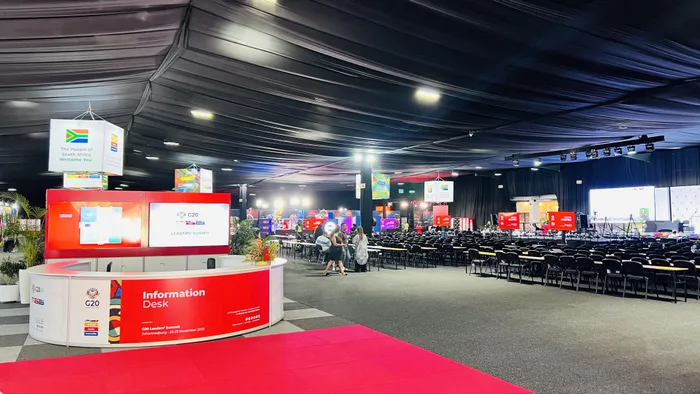
South Africa's Moment: Tight Security Underpins Historic G20 Leaders Summit at Nasrec
Image: Thabo Makwakwa
As world leaders gathered at South Africa’s Nasrec Expo Centre for the much-anticipated G20 Leaders’ Summit this weekend, organisers left no room for disappointment.
Security was unmistakably tight both inside and outside the venue, ensuring a controlled environment for high-stakes discussions.
South Africa’s G20 presidency has been heralded as a defining moment not only for the country but for the entire African continent.

South Africa Hosts Heavily Secured G20 Leaders' Summit"
Image: Thabo Makwakwa / IOL
It positions South Africa as a key player championing a global agenda that balances growth, development, and diplomatic collaboration.
In the hours leading up to the summit, Nasrec transformed into a hub of media activity. Hundreds of local and international journalists scurried to set up cameras and equipment ahead of the Saturday and Sunday sessions.
An IOL assessment found that access to the venue was strictly limited, with nearly every entrance blocked. Law enforcement officers patrolled the perimeter, demonstrating the seriousness with which security was handled.
Over 3,500 police officers were deployed for the event, supplemented by military personnel kept on high alert.

G20 Summit in Johannesburg: Security Takes Centre Stage as World Leaders Gather
Image: Timothy Bernard / Independent newspapers
The National Joint Operational and Intelligence Structure - a unified command combining police, military, and intelligence agencies - coordinated the entire security effort.
Only law enforcement and dignitaries were permitted near the venue, underscoring the summit’s high-profile nature.
Inside, security measures were no less rigorous. Facial recognition systems screened every attendee at the entrances, ensuring heightened scrutiny.
Lieutenant General Tebell Mosikili, Deputy National Commissioner for Policing, said that authorities anticipated around seven protests across Johannesburg and other major South African cities during the summit period.

Unprecedented security measures have been implemented with over 3,500 police officers deployed.
Image: Thabo Makwakwa / IOL
“We will allow that right [to protest] to be exercised,” she said, “but within the proper directives and proper confines of the law.”
Meanwhile, Gauteng Premier Panyaza Lesufi expressed pride in the provincial and municipal teams’ extensive efforts to prepare the region for the summit.
“What they’ve done for the preparations, especially in infrastructure, water, electricity, and the beautification of the entire province, we requested departments to use their current budgets. So, there was no new money allocated specifically for the G20,” he explained.
The two-day summit officially opens on Saturday and is expected to attract leaders and top diplomats from over 40 countries, as well as representatives from global institutions such as the United Nations.

The G20 summit marks a defining moment for both South Africa and the African continent on the global stage,
Image: Thabo Makwakwa / IOL
Notably, the US is boycotting this year’s summit, with President Donald Trump declining to attend amid widely discredited claims of “white genocide.”
As South Africa steps into the global spotlight, the G20 summit at Nasrec serves as a platform for the continent to showcase its influence in shaping international dialogue and cooperation.
thabo.makwakwa@inl.co.za
IOL Politics
Related Topics: